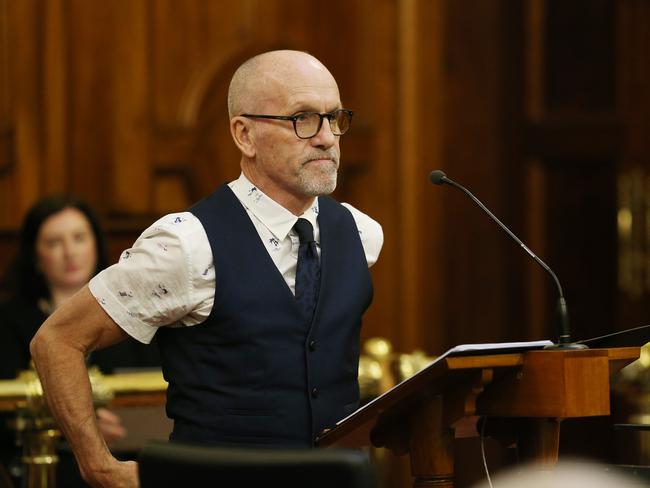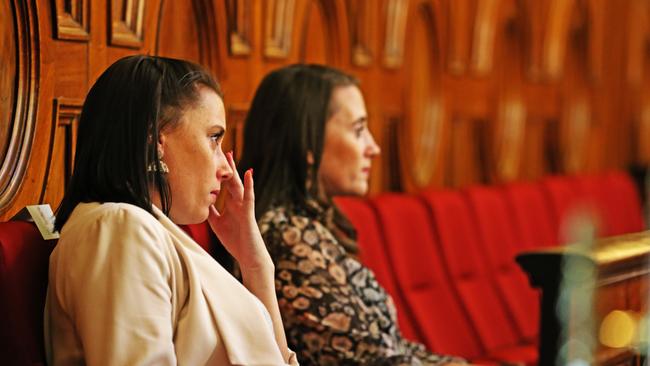Talking Point: Tasmania’s VAD law can lead the nation in compassion
We shouldn’t let Voluntary Assisted Dying legislation become a pale imitation of the Victorian law, writes Robyn Maggs
Opinion
Don't miss out on the headlines from Opinion. Followed categories will be added to My News.
“THIS battle is lost until it is won.”
So wrote a lovely young woman, Jacqui Gray, whose mother died a dreadful death because she did not have the legal right to end her suffering peacefully.
The End-Of-Life Choices (Voluntary Assisted Dying) Bill 2020 is being debated in the Legislative Council. Many amendments have been passed or are being proposed. Some relate to telehealth, nurses, the “gag order” and the conscientious objection for entities exception (residential care providers).
While these amendments in isolation may not initially appear to have a great impact, when taken as a whole they will severely inhibit a person’s ability to engage with a compassionate VAD process.
With the best of intentions, members of parliament who believe their amendments will improve the Bill may achieve the opposite, making it a more difficult and less compassionate Bill than it needs to be.
Tasmanians are proud of the fact we have often done things better than those mainlanders. Now the question is whether we want this incredible piece of legislation to be amended into being a pale imitation of the Victorian legislation, or whether it can set a standard for the rest of Australia.

When Mike Gaffney sent an early draft of his Bill to Canada, Professor Jocelyn Downie, a lawyer who served as a special adviser to the Canadian Senate Committee on their VAD legislation, spoke highly of the legal craftsmanship and policy goals of the Tasmanian legislation.
Dr Nick Carr is a GP in St Kilda and an honorary clinical senior fellow in the Department of General Practice at the University of Melbourne.
He wrote, “There are some limitations to the Victorian Bill, and in my opinion, the proposed Tasmanian Bill improves on these without any negative effects.”
Dr Cam McLaren is a medical oncologist in Melbourne. He wrote, “The proposed Tasmanian End-of-Life Choices Bill addresses several issues that we are experiencing in the application of the Victorian legislation, while maintaining patient safety. In reviewing the Bill, I find myself at times to be envious.
The Bill addresses not only issues that we have already identified in Victoria, but also shows great appreciation for the vast differences between Victoria and Tasmania — one size does not fit all.”

Mistakes can be learned from. And there are mistakes in the Victorian legislation.
The Voluntary Assisted Dying Review Board’s August report raises many areas for improvement, including telehealth, whose restrictions, the Board writes, have “a significant impact on Victorians living in regional areas or for those who find it incredibly difficult to travel due to their clinical condition.”
Four legal experts did an analysis of the Victorian Act to consider the extent to which it reflects its stated policy goals.
Their conclusion: “The Voluntary Assisted Dying Act 2017 (Vic) is not consistent with its policy goals in some important respects.”
And doctors Carr and McLaren, who have helped hundreds of Victorian individuals through to what they have described as “a beautiful death”, state that Tasmania has improved in areas including Telehealth, nurses, the gag order and the conscientious objection for entities exception (residential care providers).
I watched, with fascination, the give-and-take of the Voluntary Assisted Dying Bill debate on the Upper House webcast.
I was surprised to find Labor MPs voting as a block. Weren’t they supposed to have a conscience vote? Having a predetermined position meant they were not open to considering the critical explanations Mike Gaffney gave in response to proposed amendments. At times the amendments seemed more doctor-centric than patient-centric.
It is important to remember, as New Zealand cardiologist Dr Miles Williams wrote, “This is not an Act that gives doctors the right to take away life.
It is an Act that gives doctors the right to assist dying people to die. This is not a movement initiated by doctors or governments.
This is a global movement instigated by ordinary people facing personal tragedy.”
Which MPs will be able to proudly say they supported a Bill that will not only bring comfort to the dying, but sets a shining example to the rest of Australia as to how good such legislation can be.
Hobart’s Robyn Maggs is a clinical psychologist who has worked with people with terminal illness and their families.


